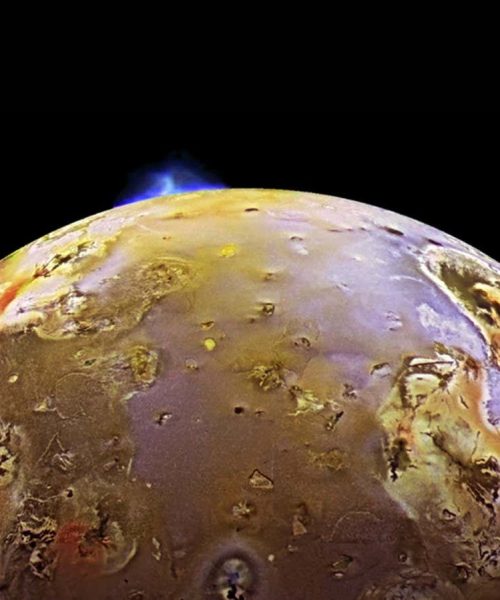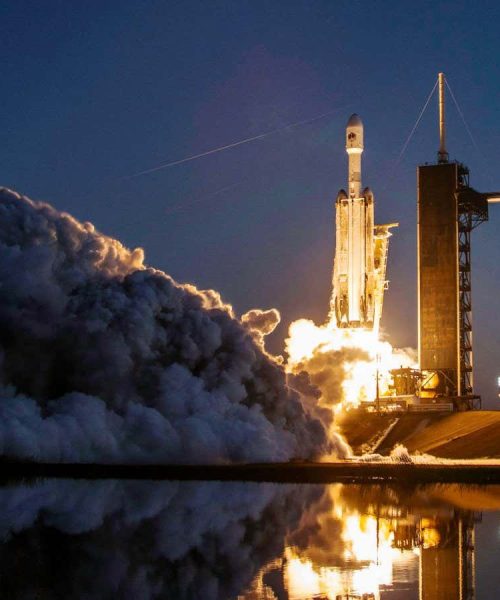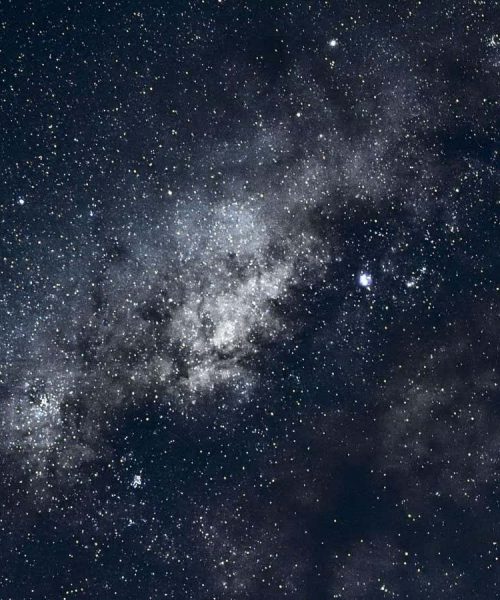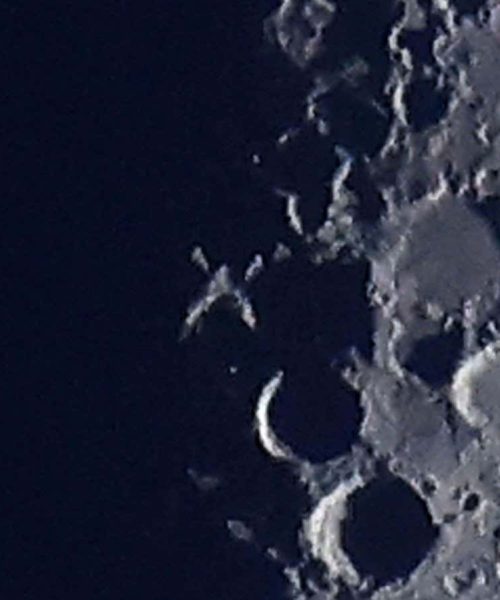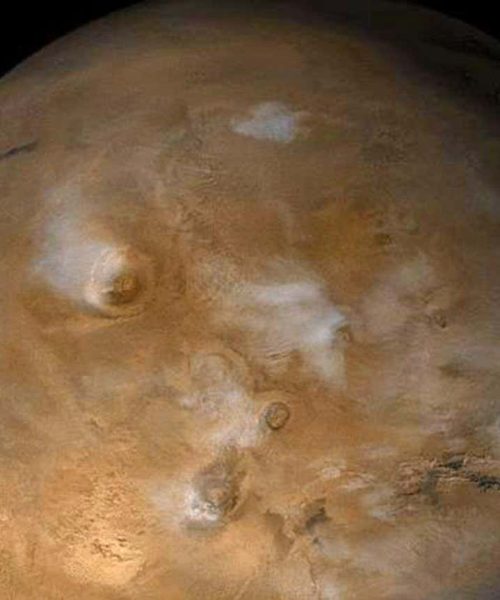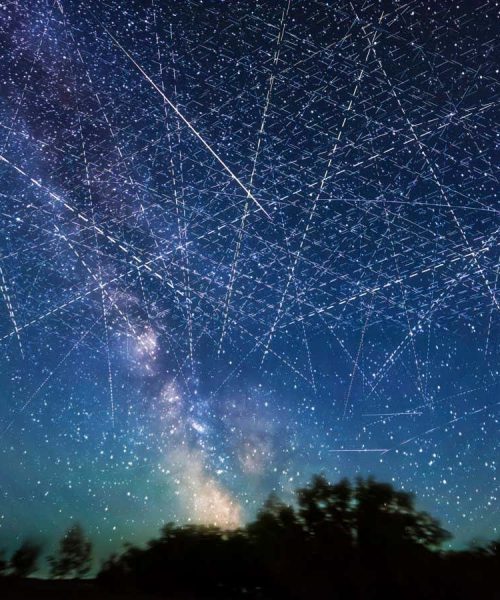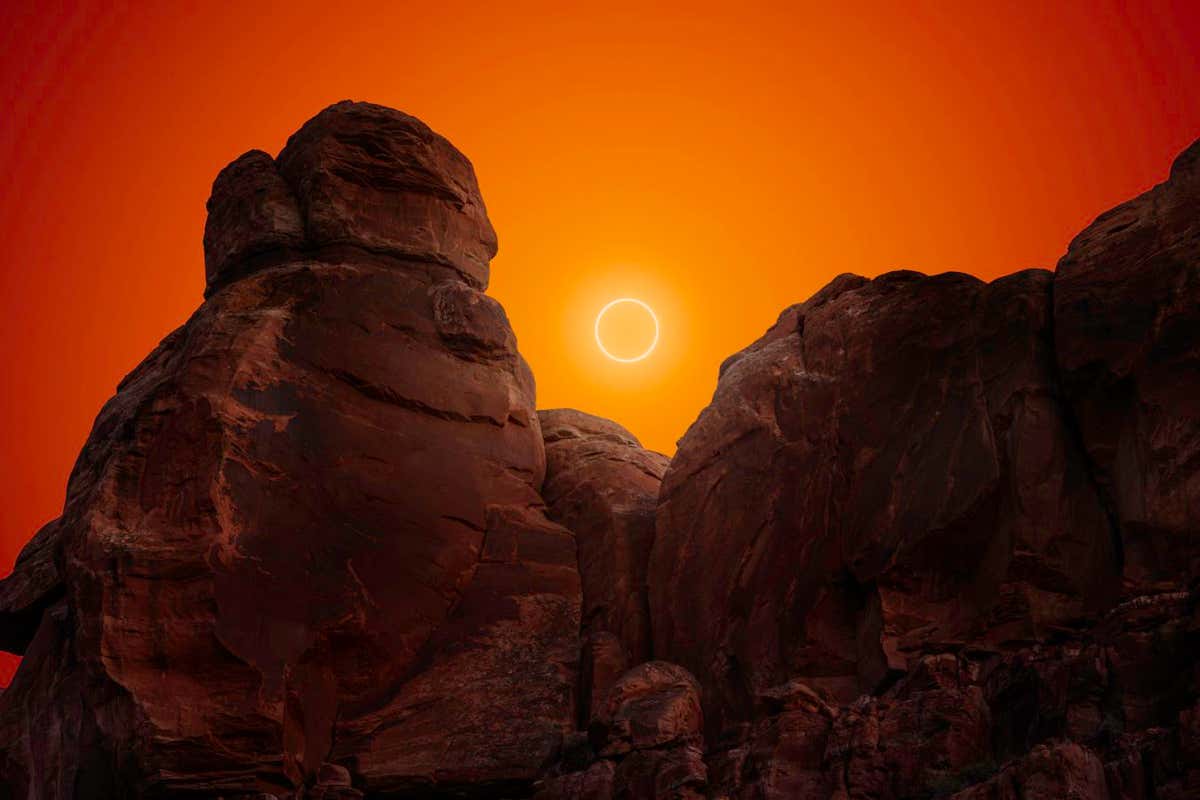
Daniel J Stein and Andrew McCarthy
THIS captivating shot, showing the sun and full moon perfectly aligned over the Valley of the Gods in Utah last October, amps up anticipation for next month’s total solar eclipse in North America.
A collaboration between photographers Andrew McCarthy and Daniel Stein, the image shows an annular solar eclipse, where an outer “ring of fire” forms because the moon is too far from Earth to fully cover the sun. The shot is the result of thousands of images pieced together digitally, pairing Stein’s landscape photography skills with McCarthy’s experience at capturing images of the sun.
After months of planning, the pair got their crucial shots by positioning cameras and telescopes at a carefully selected desert location, taking into account aspects like weather patterns, eclipse duration and landscape features.
Advertisement
The image was released on social media on 8 March, exactly one month before a total solar eclipse will pass over North America, during which the moon will entirely cover the sun. It will shroud many parts of the continent – from Canada to the US and Mexico – in darkness, or totality. The path of totality is due to be much wider than the last such eclipse that occurred in the region: almost 200 kilometres will be covered, compared with about 115 kilometres in 2017.
“It’s easy to take the sun for granted… but when the [sun and moon] combine during an eclipse, it is breathtaking. We feel bringing in the landscape element then adds a sense of grounding to the image, allowing the viewer to really connect with the piece,” says Stein.
New Scientist eclipse special
See our news and explainers on North America’s total eclipse on 8 April newscientist.com/article-topic/solar-eclipse-2024
Topics:
